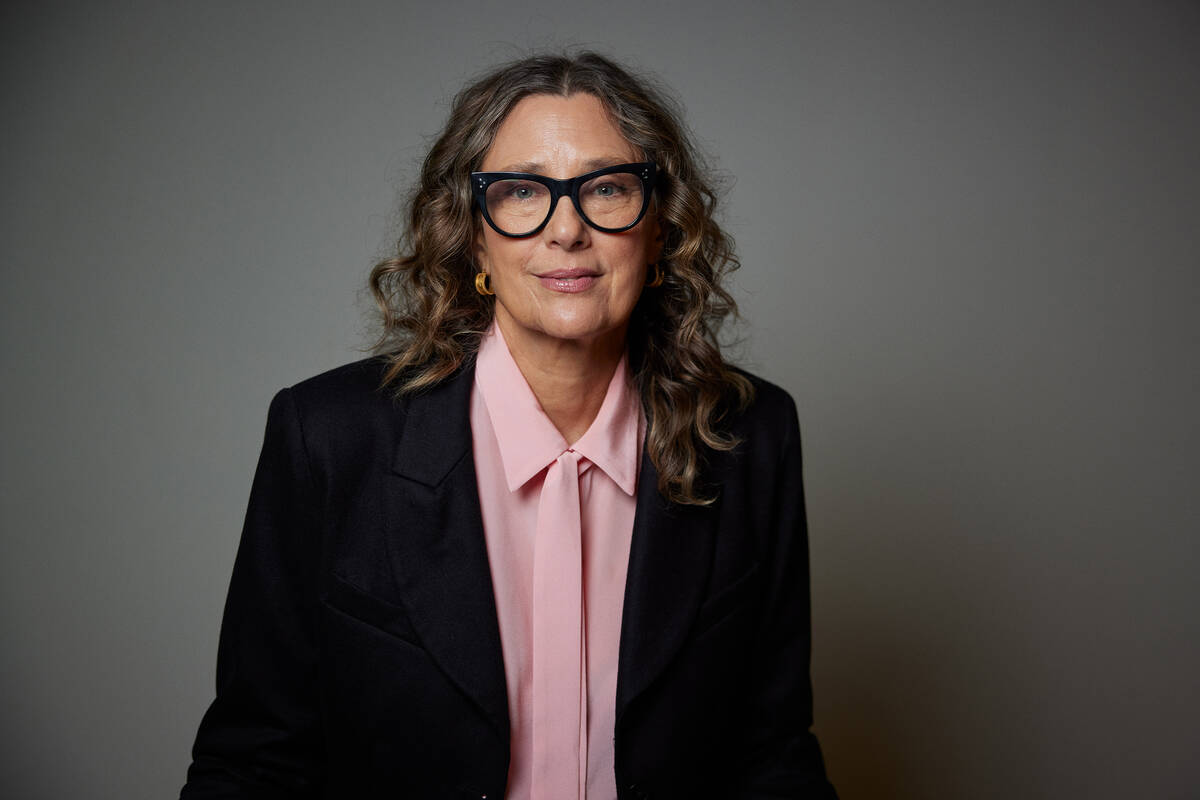Director’s quest to make ‘Mr. Scorsese’ started with simple question
Rebecca Miller relishes Act 3.
“I love being a woman of this age,” the 63-year-old film director says. “You know who you are … and who you are not. You know what you will do … and what you will not. Most of all, if you’re lucky, you know how you want to spend your time. It’s a very powerful position to be in, in a great and powerful part of your life.”
For her latest project, the new Apple TV+ docuseries “Mr. Scorsese,” Miller focuses on someone who’s usually behind the camera. Its five episodes, all streaming now, explore the creative genius of Martin Scorsese through intimate interviews with the famed director, plus access to his private archives and conversations with Robert De Niro, Sharon Stone, Leonardo DiCaprio, Margot Robbie, Daniel Day-Lewis and Steven Spielberg.
Miller had unprecedented access to explore Scorsese’s life and work, including inside stories about his classics such as “Mean Streets,” “Taxi Driver,” “Goodfellas,” “Raging Bull,” “Gangs of New York,” “Casino,” “The Age of Innocence” and “The Wolf of Wall Street.”
The daughter of playwright Arthur Miller and photographer Inge Morath, and the wife of Oscar-winning actor Daniel Day-Lewis, Miller is no stranger to the spotlight.
After studying painting and literature at Yale, she switched to acting and then directing films, including “Angela” and “Personal Velocity: Three Portraits.” She directed her husband in the father-daughter drama “The Ballad of Jack and Rose” and helmed “Maggie’s Plan” starring Greta Gerwig.
Miller lives in New York with Day-Lewis and their sons Ronan and Cashel. Her good life advice:
Stay focused
Miller isn’t new to making celebrated documentaries. She directed 2017’s “Arthur Miller: Writer” about her famous father. Why turn her lens toward Scorsese? “I was talking with my producing partner about who would be a good subject for another doc, and the question was simple: Who are some of your favorite people? Martin Scorsese immediately came to mind because he’s such a fascinating artist.”
Take chances
Even though Day-Lewis has worked with Scorsese on films such as “Gangs of New York” and “The Age of Innocence,” Miller says she didn’t really know the famed filmmaker before this docuseries. “I knew him somewhat, but just cordially, socially,” she said. “He actually gave me advice about filmmaking, which was wonderful. He gave me a list of films I should watch that were inspiring. And then he gave me a note or two about one of my films.”
Cut to her proposing that she direct Scorsese’s life story. “I had the idea and called his producer, who said I should write him a letter. It was one of those moments where you just give it a shot.” That letter led to a meeting … and so much more. “Eventually, we sat on my porch during the pandemic because that was the only place we could work in those days,” she adds. “There were moments when I thought, ‘This can’t be real. I’m making a documentary about Martin Scorsese and he is sitting across from me.’”
Be persistent
Scorsese didn’t just say yes, Miller shares: “He started to talk about how we would do this and what we would do as if we were doing it. I thought, ‘Are we making this film?’ It was a yes that unfolded.”
Every story is a movie
Miller says everyone has an origin story that might even be quite cinematic. “Scorsese’s origin story is he had terrible asthma and couldn’t breathe outside of cold movie theaters. The rest of the time, he spent in his room watching life go by in his window panes. It felt like a movie was playing out in front of him. He was directing the story.”
Ask questions
Miller says one of the common themes that intrigues her about Scorsese is his view of good and evil. “I think part of the reasons his films are timeless is because he asks these massive, almost biblical questions — ‘Is there evil and good in all of us?’ But he’s not telling the audience what to think. He’s giving you so much information, but he’s not tying it up with a bow,” she says.
Look for lessons
Miller says Scorsese taught her about reinvention at all stages of life. “This film is a lesson for everybody about winning and losing … and yes, failing and reinventing again and again — both personally and professionally,” she says. “You don’t have to be an artist. When we fall down, we have to pick ourselves up. And that’s tough each time. Marty had to do it a lot of times. To me, that is very beautiful and inspiring.”
A happy home
Miller met Day-Lewis at a party at her father’s home and then they spent time together while he filmed “The Crucible,” a play written by Arthur Miller. The couple, who will celebrate their 29th wedding anniversary in November, have two grown sons, filmmaker Ronan Day-Lewis and composer and violinist Cashel Day-Lewis. Ronan recently directed his father in the new film “Anemone,” bringing him out of a short retirement. “It’s a little bit odd to have all of our projects coming out at the same time,” Miller says. “It’s amazing. It’s exhausting. But the best thing is that we all support each other.”



















